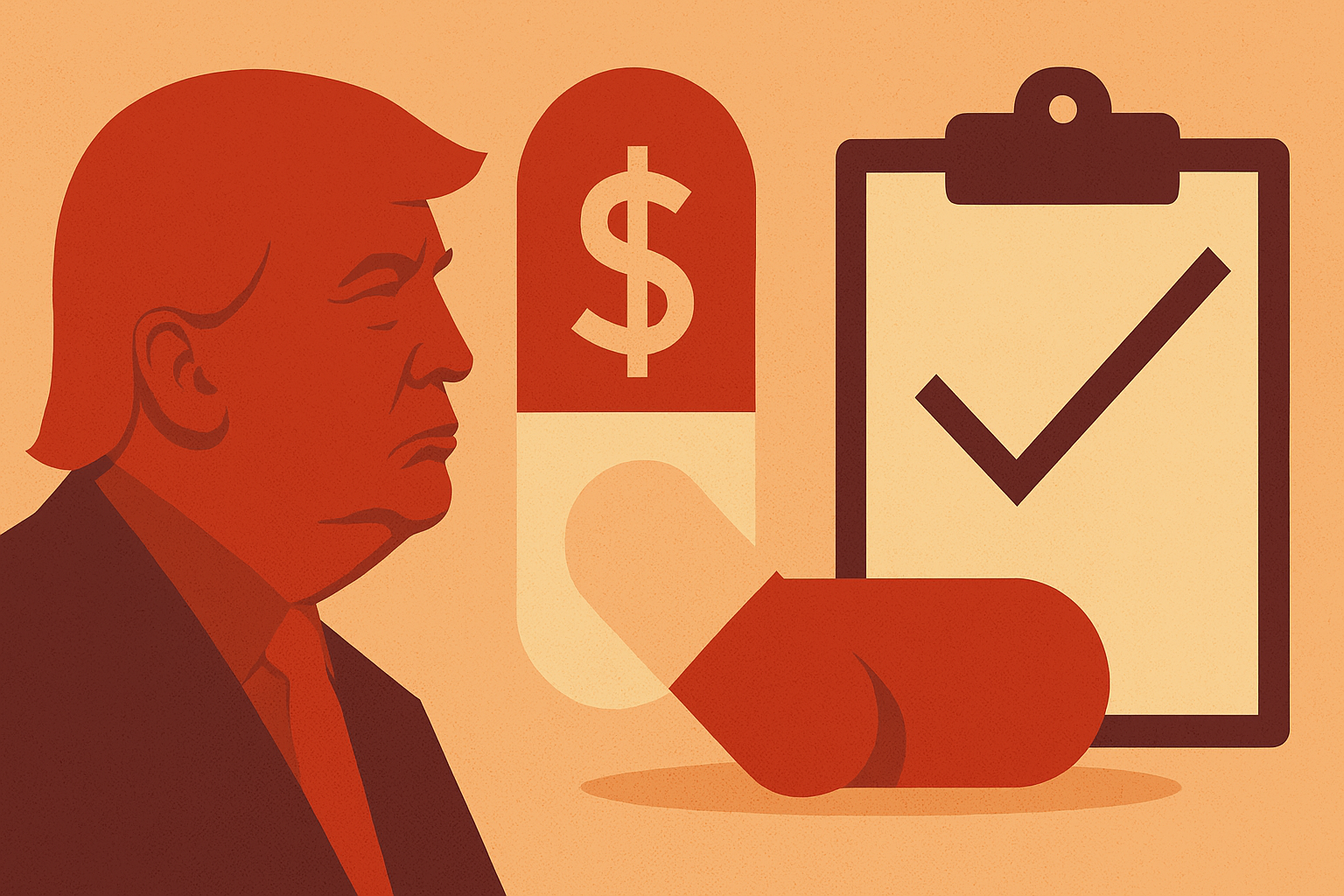President Donald Trump has issued a direct ultimatum to 17 major pharmaceutical companies, demanding they commit to substantial reductions in drug prices by September 29, in a bold move aimed at easing healthcare costs for American families. The demand comes with a warning that the administration is prepared to use “every tool in our arsenal” if companies fail to comply.
The letters, released Thursday, call for “binding commitments” and propose sweeping measures—including applying “most favoured nation” pricing to Medicaid, aligning U.S. drug prices with those in other developed nations, and offering direct-to-consumer sales that bypass pharmacy middlemen. The move immediately impacted the stock market, with shares of companies like AstraZeneca, Merck, Eli Lilly, Pfizer, Regeneron, GSK, and Novo Nordisk all trading lower.
While Roche and Takeda Pharmaceuticals—headquartered in Switzerland and Japan—were not directly addressed, Roche’s U.S. subsidiary Genentech was included among the recipients.
Industry Response and Legal Uncertainty
This initiative follows Trump’s earlier promise in May to cut U.S. drug prices by up to 80%, a pledge that has drawn both support from voters and resistance from the pharmaceutical industry. However, it remains unclear whether Trump has the legal authority to enforce such measures. A similar proposal in 2020, which attempted to implement “most favoured nation” pricing, was blocked by court injunctions after legal challenges from drugmakers.
In response to the renewed pressure, pharmaceutical companies have ramped up lobbying efforts. According to public records, industry lobbying reached unprecedented levels in the first half of 2025. The industry’s main lobbying group, PhRMA, spent $20 million—the highest ever recorded for the first six months of a calendar year. Merck alone spent $5 million in Q2, while Eli Lilly recorded its largest six-month lobbying expenditure since 2009.
Market Impact and Political Implications
The pharmaceutical sector has underperformed in 2025, with the S&P Healthcare Index down 2.7%, compared to an 8% increase in the broader S&P 500. Trump’s aggressive posture toward the industry—despite unclear enforcement authority—has heightened investor uncertainty.
Additionally, the administration is exploring new tariffs specifically targeting pharmaceutical imports. These proposed tariffs are separate from country-specific trade deals and, while not expected to take effect for at least a year, signal a broader shift in trade and healthcare policy under Trump’s leadership.
Outlook
While it remains to be seen whether drugmakers will comply with the administration’s demands or challenge them in court as before, Trump’s actions are likely to intensify the national debate on drug pricing. With the 2026 midterms approaching, the administration is betting on aggressive healthcare reform to win over voters burdened by high medication costs.
For now, pharmaceutical companies face a growing dilemma: resist politically charged demands at the risk of public backlash—or comply and restructure pricing models in one of the world’s largest healthcare markets.



